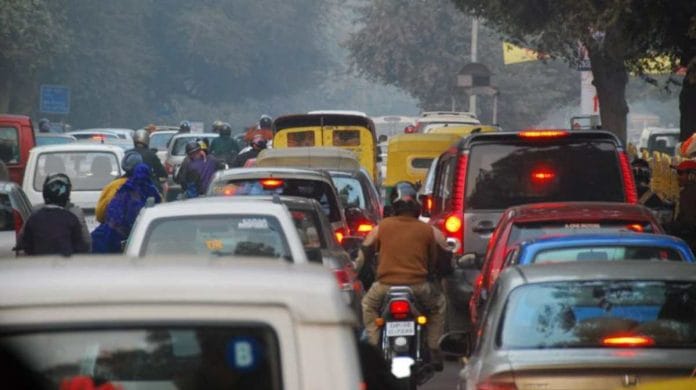New Delhi: Prime Minister Narendra Modi launched the much-awaited vehicle scrappage policy at an investment summit in Gujarat Friday.
Also known as the Voluntary Vehicle Fleet Modernisation Programme, the policy was first unveiled in March. It has now formally been launched, aiming to remove unfit and polluting vehicles off India’s roads and replace them with modern fuel-efficient and environment-friendly cars.
“The new scrappage policy is an important link in the circular economy and the waste-to-wealth campaign. This policy also reflects our commitment to reduce pollution in the cities of the country and protect the environment and fast development,” PM Modi said at the summit, which was held to attract investment that will help establish the infrastructure required for the programme.
“This policy, by following the principle (of) reuse, recycle and recovery, will also promote the country’s self-reliance in the auto sector and in the metal sector,” said Modi.
The policy will be implemented starting April 2023 for heavy commercial vehicles, and June 2024 for private vehicles.
Also read: Piyush Goyal slams e-commerce giants, vows social media-like rules for Amazon, Flipkart
What the guidelines say
The Voluntary Vehicle Fleet Modernisation Programme dictates that private vehicles over 20 years old, and heavy commercial vehicles more than 15 years old should be off India’s roads if they fail to pass a mandatory automated fitness test on criteria including braking, engine performance and emission, said a report in The Financial Express.
While the scrapping policy is voluntary, if the vehicle fails to clear the test and the permitted retest, it will be declared an “end of life vehicle” (ELV), said a report in The Times of India.
Owners can then choose to scrap the vehicle, a step the policy incentivises.
Upon scrapping, a certificate will be given to the owner that allows them to forgo registration charges and a road tax rebate up to 25 per cent for a new private vehicle and up to 15 per cent for a new commercial vehicle the owner purchases.
“The maintenance cost, repair cost, fuel efficiency of the old vehicle will also be saved in this. The third benefit is directly related to life. There will be some relief from the high risk of road accidents due to old vehicles and old technology. Fourth, it will reduce the harmful impact of pollution on our health,” the PM said.
Moreover, the policy makes it costlier to run old vehicles even if they have passed the fitness test. For instance, charges for re-registration of a commercial vehicle could go up by 62 times and that of a private vehicle by eight times. Owners will also be expected to pay a green tax, on top of the road tax they already pay under the Motor Vehicle Act.
Circular economy benefits
According to data shared by the Ministry of Road Transport and Highways, there are “51 lakh light motor vehicles that are more than 20 years old and 34 lakh over 15 years old. Around 17 lakh medium and heavy commercial vehicles are older than 15 years.”
However, infrastructure to test and scrap such large numbers of vehicles does not exist as of now, an issue the summit held in Gujarat aimed to tackle. There are just seven automated fitness centres and two authorised scrappage centres across the country.
Road Transport and Highways Minister Nitin Gadkari said this policy is in sync with India’s commitment to the Paris Agreement, underlining how vehicles become increasingly less fuel-efficient as they become older. He also argued that not only is this policy environment-friendly, it is also economically sound since it will create 35,000 new jobs and attract investment worth Rs 10,000 crore.
Scrapping old metals also provides cheap raw materials — since 99 per cent of the materials can be recycled, thus reducing the cost for vehicle manufacturers.
This idea falls in line with the notion of a circular economy which “depends on reuse, sharing, repair, refurbishment, remanufacturing and recycling of resources to create a closed-loop system, minimising the use of resources, generation of waste, pollution and carbon emissions”, according to an Indian Express report.
(Edited by Amit Upadhyaya)
Also read: Caste census, OBC ministry, pvt sector quota — Opposition demands during OBC bill debate






